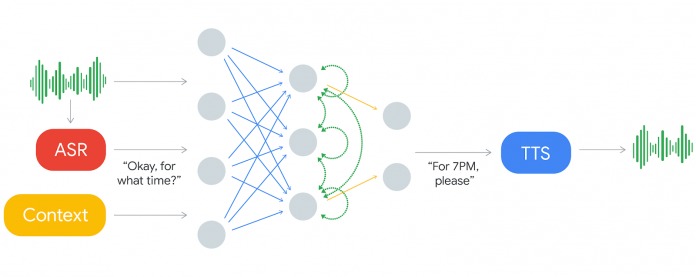
While most of us who don’t know much about artificial intelligence probably envision machines and robots just running the show eventually, in reality, there is still a lot of human intervention needed. Case in point is Google Duplex, the AI program from the tech giant that makes reservations for users with human-sounding robots. But apparently, around 40% of these calls aren’t really fully AI-powered and requires actual humans to start or continue the calls. This isn’t really a huge problem except that Google may have been overselling the capability of its Duplex program.
If you haven’t heard of Duplex yet, it’s a feature on Google that lets you make reservations at restaurants without actually making the call. Google’s AI will be the one to process your reservation which starts with online booking tools at first but if the option isn’t available, it will let the AI call the restaurant and sound like an actual human calling, book a table for you, then send you confirmation and the details.
But according to a New York Times article, this isn’t exactly what happens. Google confirmed that around 25% of Duplex calls actually start with human callers and then 15% start with AI but need human intervention down the line. They determine through various signals which calls will have humans taking care of it like if they’re unsure if the restaurant takes reservations or if the user of the assistant may actually be a spammer.
The restaurants involved aren’t also all that happy with AI callers. Some find it creepy while there are also some confusing instances where Duplex will make the call twice. Some are not even picking up the calls because the caller ID indicates it might be spam. Plus there’s all those issues between distinguisihing what’s real and what’s not.
Duplex isn’t as widely available just yet and so Google probably has time to fix the back-end before rolling it out more widely. They also plan to expand it to other kinds of businesses where you need reservations like salons, spas, etc.









